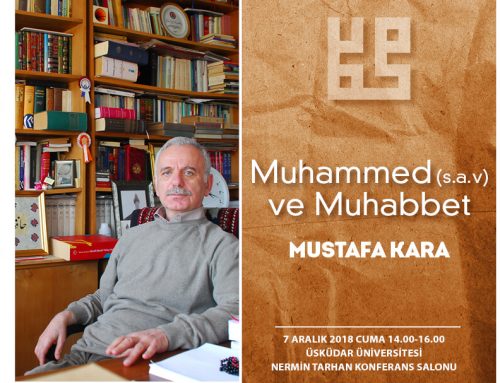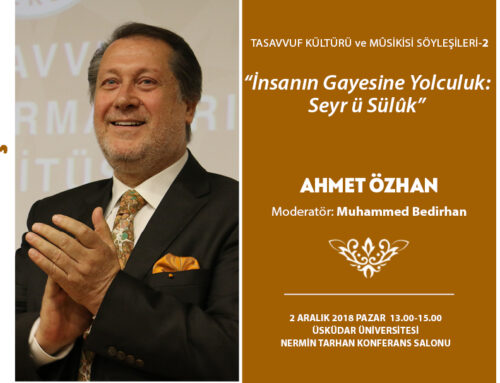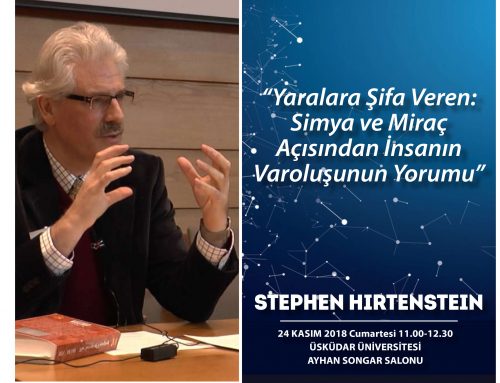Following the US and China, the Center for Sufi Studies was established in Japan. Prof. Yasushi Tonaga, who heads the Kenan Rifai Center for Sufi Studies established at Kyoto University in Japan with the initiatives of TÜRKKAD and Kerim Foundation, says: “I am interested in mysticism.”
Ken’an Rifai Chairs of Islamic Studies were opened by TÜRKKAD and Kerim Foundation in 2009 in Chapell Hill, North Carolina, USA and then in 2011 at the Institute of Advanced Humanities at Peking University, China… After these two chairs, Japan was the target. Last week we were in Kyoto for the official opening of the center. The opening of the Kenan Rifai Sufi Studies Center was held with the participation of senior representatives of Kyoto University, members of TÜRKKAD, Kerim Foundation and academics from Turkey who are experts in the field of Sufism. Cemalnur Sargut, President of TURKKAD Istanbul Branch, founding member of Kerim Foundation and known for her Sufi studies, was proud at the opening of the center: “We need such institutes to see Sufism as a high level of moral education and to stay away from extremism, terrorism and controversy. We started these institutes five years ago in America, and one of our graduates is one of the most important Islamic writers in America. When we decided to open one in China, they said, “Don’t do it, Hodja”. Now we have reached Japan, and I think we will be successful here as well.” Prof. Yasushi Tonaga, who is fluent in Turkish, was appointed as the head of Kyoto University’s Tassuvuf Research Center. Tonaga is a faculty member at Kyoto University’s Faculty of Asian and African Studies and a researcher at the university’s Center for Islamic Studies. Tonaga is a name that sends his students studying Islamic mysticism to Turkey. For this reason, most of his students speak Turkish very well, just like him. It was astonishing to see Japanese people with such a good command of Turkish and Sufism on the other side of the world. One of Tonaga’s biggest goals is to raise awareness among Japanese people against Islamophobia. Tonaga became interested in Sufism after being influenced by a book on Ibn Arabi and his ideology written by one of his professors. After studying at Cairo University between 1986 and 1988, he came to Turkey in 1987. After realizing the importance of the Ottoman period for Islamic culture, he began to research Islamic civilization during the Ottoman period and mysticism in Islam. Since then, Tonaga has been living in Turkey from time to time and we had a conversation with him about his love of tassuvuf:
LESS ISLAMAPHOBIA IN JAPAN
– Where do you define yourself in Sufism?
– I am very interested in Sufi thought, but not only Islamic Sufism, but mysticism in general, all kinds of mysticism known in the world. In this new center we have opened, I would like to do a study on the comparison of various mysticism trends, not only Sufism, but also Islamic Sufism and Buddhist mysticism, for example…
– Your job is very difficult in these times when Islamophobia is so widespread…
– Islamophobia is not so high in Japan compared to Europe or America. In fact, Japanese people’s general knowledge about Islam is low. Anyway, I think there are several kinds of Islam. One is radical Islam, which is very terror-oriented. But traditional Islam in Turkey is very different from this kind of Islam. Because this is related to the tradition of Sufism and tariqa. In this center, I want to show the true face of Islam with the example of Turkish Islam based on Sufism. If we succeed in our center in informing the general Japanese public about the other side of Islam, Sufi Islam, then they will see Islam in a different light and change the current image of Islam.
FAR EAST MIDDLE EAST BRIDGE
– How do you guide your students in Sufi studies?
– Every year I select one or two students for Sufi studies… Some of them are interested in Arabic Sufism and some in Iranian Sufism. Recently, half of my students are interested in Turkish Sufism. Every year my students are in Turkey for a few months, sometimes even a couple of years. Here they either carry out fieldwork or spend their time in libraries and archives.
– Are the Japanese close to Sufi thought? What do you aim for in this center?
– Japanese people are interested in mysticism. There is a big difference between Islam in Arabia and in Turkey. Its origin is Sufism. Japan has a tradition of mysticism. Sufi thought is very close to the Japanese. In the future, I want Kyoto to become a center for Sufi studies in Asia and the Far East. We want our center to serve as a bridge between the Far East and the Middle East. So I want to send many of my students to Turkey to research Sufism, not only Sufism in modern Turkey but also Sufism in the Ottoman period. We also welcome Turkish students and academics to come to Kyoto University to give seminars or to study.





